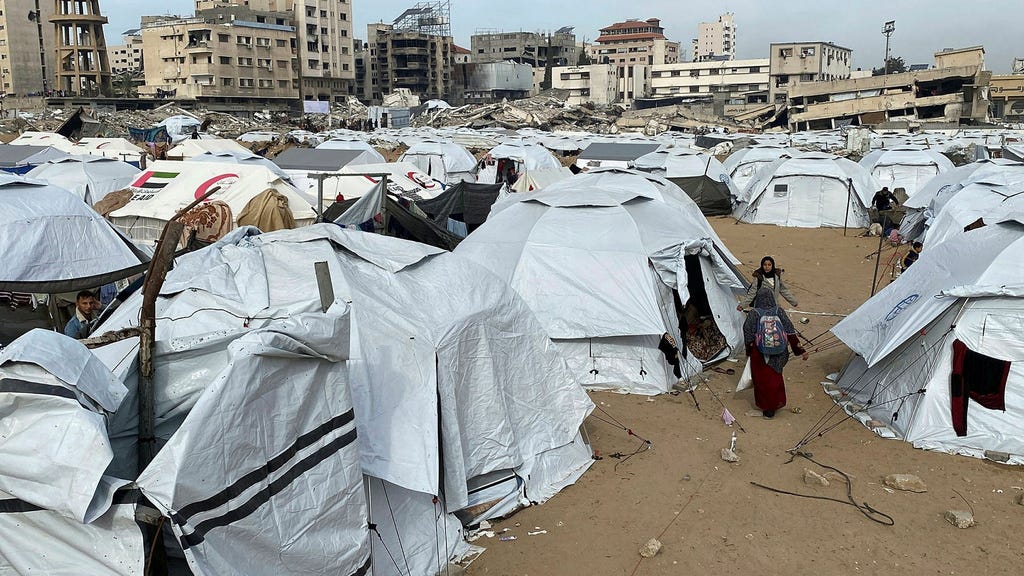The Looming Humanitarian Crisis of 2025: A Deep Dive into Global Vulnerabilities
As 2024 draws to a close, the world stands on the precipice of a deepening humanitarian crisis. The International Rescue Committee (IRC) has released its annual watchlist of 20 countries most at risk of worsening humanitarian situations in the coming year, painting a grim picture of escalating conflicts, displacement, and hunger. The IRC’s president, David Miliband, warns that the world is "on fire," with hundreds of millions of people facing daily struggles due to a fundamentally imbalanced global landscape. This imbalance, fueled by ongoing conflicts, political instability, and climate change, is pushing vulnerable populations to the brink.
Sudan tops the list for the second consecutive year, ravaged by a brutal civil war that has displaced a staggering 14.6 million people internally. The country is grappling with its worst famine in decades, and the absence of a diplomatic solution raises the specter of a catastrophic humanitarian collapse in 2025. The sheer scale of displacement and the severity of the food crisis pose an immense challenge to humanitarian organizations struggling to provide aid in a conflict-ridden environment. The lack of a political resolution further exacerbates the situation, hindering aid delivery and prolonging the suffering of millions.
The Palestinian territories occupy the second spot on the IRC’s list, facing a rapidly deteriorating humanitarian situation. The recent Gaza war has resulted in tens of thousands of casualties, and a ceasefire remains elusive. The ongoing conflict and blockade have severely restricted access to essential resources, pushing the region towards a potential famine in 2025. The escalating violence and the destruction of infrastructure have crippled the healthcare system, leaving the population vulnerable to disease and malnutrition. The combination of conflict, displacement, and food insecurity creates a perfect storm for a humanitarian catastrophe.
Myanmar ranks third, with nearly 900,000 people displaced due to escalating conflict in 2024. The IRC anticipates a further worsening of the humanitarian crisis in the coming year. The ongoing political turmoil and violence have created a climate of fear and instability, forcing people to flee their homes and seek refuge in overcrowded camps. Limited access to healthcare, education, and other essential services exacerbates the suffering of the displaced population. The international community faces a significant challenge in addressing the root causes of the conflict and providing adequate humanitarian assistance.
Miliband stresses the urgency of addressing these crises, highlighting both moral and strategic imperatives. He argues that the global community possesses unprecedented resources that must be mobilized to aid the world’s most vulnerable populations. Furthermore, he underscores the interconnectedness of global crises, emphasizing that instability in regions like Sudan and Syria has far-reaching consequences, contributing to global insecurity. The failure to address these crises effectively not only perpetuates human suffering but also poses a threat to global stability.
The IRC’s list includes other countries grappling with complex humanitarian challenges. Syria, ravaged by years of civil war, remains a hotspot of suffering and displacement. South Sudan, plagued by internal conflict and food insecurity, faces a precarious future. Lebanon, burdened by a political and economic crisis, struggles to cope with a large refugee population. Burkina Faso, Haiti, Mali, and Somalia are also grappling with a combination of conflict, poverty, and climate change, pushing their populations towards the brink of humanitarian disaster. These countries represent a microcosm of the interconnected global challenges that demand urgent attention and concerted action.
The IRC’s warning serves as a stark reminder of the interconnectedness of global challenges and the imperative for collective action. Addressing these crises requires a multifaceted approach, including diplomatic efforts to resolve conflicts, increased humanitarian funding, and long-term development initiatives to build resilience. The international community must prioritize the needs of the most vulnerable and work collaboratively to avert further human suffering and prevent these crises from spiraling into full-blown catastrophes. The IRC’s report is a call to action, urging the world to respond with compassion and resolve to mitigate the looming humanitarian crisis of 2025.














